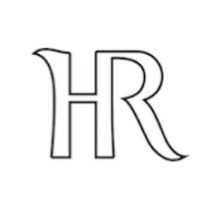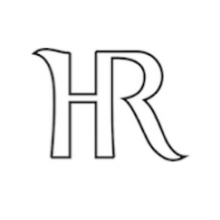O projekcie
Celem projektu jest wydanie przewodnika „Wiem i powiem” dla dziennikarzy i sygnalistów czyli osób, które w interesie społecznym ujawniają nieprawidłowości w przedsiębiorstwach i urzędach.
Przewodnik będzie wyjaśniał, jakie gwarancje przysługują osobom, które mówią głośno o nadużyciach, ponieważ chcą z nimi walczyć.
Ludzie, którzy chcą ujawnić nieprawidłowości np. w swoim miejscu pracy lub w lokalnym urzędzie, często nie robią tego w obawie przed konsekwencjami. Obawy te wynikają z braku rzetelnej informacji. Osoby te nie wiedzą, czy i jak mogą bezpiecznie skontaktować się dziennikarzem, który może pomóc w sprawie, ani jak mogą się bronić przed negatywnymi skutkami ujawnienia nadużyć.

Informacje pochodzące od sygnalistów niejednokrotnie pozwalają na powstrzymanie narastających problemów, których skutki może odczuć każdy z nas jako pracownik, konsument, klient czy mieszkaniec.
W rezolucji z 2010 r. Zgromadzenie Parlamentarne Rady Europy uznało, że „Ochrona sygnalistów stanowi narzędzie do usprawnienia mechanizmów kontrolnych i walki z niegospodarnością oraz korupcją zarówno w sektorze publicznym, jak i prywatnym.”

Prawnicy Helsińskiej Fundacji Praw Człowieka przygotowują przewodnik dla sygnalistów (czyli tych, którzy w interesie społecznym odważyli się zwrócić uwagę na nieprawidłowości). Ma on na celu uświadomienie tym osobom, jakie są ich prawa i obowiązki oraz co mogą zrobić, aby maksymalnie zabezpieczyć się przed ewentualnymi negatywnymi konsekwencjami swojego działania. Przewodnik będzie także skierowany do dziennikarzy, aby wiedzieli w jaki sposób mogą efektywnie chronić samych siebie oraz swoje źródła informacji.
O przewodniku

Przewodnik będzie odpowiadać na pytania:
- Jak bezpiecznie nagłaśniać nieprawidłowości?
- Jakie są obowiązki dziennikarzy w zakresie ochrony anonimowości osób zgłaszających nieprawidłowości?
- Jakie gwarancje prawne chronią dziennikarzy przed ujawnianiem źródeł informacji?
- Jakie warunki muszą spełnić sygnaliści, żeby korzystać z ochrony?
- Czy istnieją gwarancje prawne chroniące sygnalistów?
- W jaki sposób sygnaliści mogą maksymalnie zabezpieczyć się przed negatywnymi konsekwencjami swoich decyzji?
Jak Ty możesz pomóc?

Zapraszamy Cię do współrealizacji przewodnika. Jeden ze sposobów współuczestniczenia w tym wydarzeniu to Twój wkład, współudział oraz zaangażowanie. Jeżeli nadal czytasz ten tekst - to już jest dużo! Możesz trzymać za nas kciuki, możesz powiadomić znajomych o możliwości dołączenia do akcji, zaprosić rodzinę do wsparcia oraz przekazania środków finansowych, które pozwolą opłacić cały proces wydawniczy:
- prace merytoryczne nad przewodnikiem,
- skład i łamanie tekstu,
- korekta,
- redakcja,
- opracowanie graficzne,
- druk 500 sztuk,
- dystrybucja.
Zbiórka ma pokryć te koszty, a akcja crowdfundingowa ma charakter "non-profit", co oznacza, że wszystkie zebrane pieniądze zostaną przeznaczone na wydanie przewodnika i zorganizowanie akcji.
Wydany przewodnik roześlemy do mediów i opublikujemy na naszych stronach. Tak jak wszystkie publikacje Helsińskiej Fundacji Praw Człowieka, także i ten przewodnik będzie dostępny bezpłatnie.
Jeżeli zbierzemy więcej pieniędzy to nadwyżka zostanie przeznaczona na druk i dystrybucję dodatkowych egzemplarzy.
Autorzy publikacji:

Dorota Głowacka - prawniczka HFPC. Absolwentka Wydziału Prawa i Administracji Uniwersytetu Łódzkiego oraz Szkoły Prawa Francuskiego Uniwersytetu Francois - Rebelais w Tours. Doktorantka w Katedrze Prawa Międzynarodowego i Stosunków Międzynarodowych WPiA UŁ. Jest stypendystką programu Erasmus na Radboud Universieeit Nijmegen w Holandii, odbyła staz w Międzynarodowym Trybunale Karnym dla byłej Jugosławii w Hadze. Dorota Głowacka jest także koordynatorką Grupy Roboczej na temat prawa do prywatności i ochrony danych osobowych w projekcie "HELP in the 28" prowadzonym przez Radę Europy. powstanie w ramach prac zespołu Obserwatorium Wolności Mediów w Polsce - programu HFPC, który od 2008 r. monitoruje stan ochrony wolności słowa w Polsce i niezależności prasy.
Adam Ploszka - prawnik HFPC. Absolwent prawa i stosunków międzynarodowych na Uniwersytecie Warszawskim, a także Centrum Prawa Amerykańskiego prowadzonego przez WPiA UW we współpracy z Wydziałem Prawa stanowego Uniwersytetu Floryda. Doktorant w Zakładzie Praw Człowieka WPiA UW. Stypendysta Ministra Nauki i Szkolnictwa Wyższego za osiągnięcia w nauce.
Marcin Sczaniecki - młodszy prawnik HFPC, student V roku prawa na na Akademii Leona Koźmińskiego.
Kto prowadzi i realizuje projekt?

Publikacja powstanie w ramach prac zespołu Obserwatorium Wolności Mediów w Polsce - programu Helsińskiej Fundacji Praw Człowieka, który od 2008 r. monitoruje stan ochrony wolności słowa w Polsce i niezależności prasy.
Jesteśmy organizacją utworzoną w 1989 roku przez członków Komitetu Helsińskiego w Polsce. Helsińska Fundacja Praw Człowieka jest najbardziej znaną organizacją broniącą praw człowieka w Polsce (sondaż Millward Brown typu CAPIBUS na losowej reprezentatywnej próbie 1000 Polaków w wieku 15+, zrealizowany w dniach 14-21 maja 2015). Nasza misja to rozwijanie kultury wolności i praw człowieka w kraju i za granicą. Od 2007 mamy status konsultatywny przy Radzie Społeczno-Gospodarczej ONZ (ECOSOC). Heslińska Fundacja Praw Człowieka jest również członkiem m.in. Human Rights House Network, międzynarodowej koalicji tworzonej przez organizacje pozarządowe z całego świata.
Helsińska Fundacja Praw Człowieka utrzymuje się wyłącznie z grantów oraz wpłat bezpośrednich.
Więcej informacji o Helsińskiej Fundacji Praw Człowieka:
https://pl-pl.facebook.com/HFPCz/
Więcej informacji o programie Obserwatorium Wolności Mediów w Polsce:
For our English-speaking supporters:
I know and I’ll tell
About the project
The purpose of the project is to publish a guide entitled “I know and I’ll tell” for journalists and whistleblowers, i.e. individuals who report or disclose information on irregularities in private companies and public offices that represent a serious threat or harm to the public interest.
The guide will explain what guarantees may be given to persons who speak up about abuse of power because they want to fight against it.
People who want to reveal irregularities in their workplace or a local public office often refrain from doing so because they are afraid of the consequences. These concerns arise from the lack of reliable information. These persons do not know whether and how they can safely contact a journalist who could help them in this matter, or how to defend themselves against negative consequences of revealing malpractice.
Information originating from whistleblowers often helps put stop to escalating problems, the consequences of which may be felt by each of us as an employee, consumer, customer or resident.
In its resolution of 2010, the Parliamentary Assembly of the Council of Europe decided that the “Protection of whistleblowers constitutes a tool to increase the efficiency of control mechanisms and fight against financial mismanagement and corruption, both in the
public and the private sector.”
Lawyers from the Helsinki Foundation for Human Rights are preparing a guide for whistleblowers (i.e. those who in public interest dared to point out irregularities). Its purpose is to make these persons aware of their rights and duties, and what they can do to protect themselves in the best possible way against possible negative consequences of their actions. The guide will also be addressed to journalists so that they know how to effectively protect themselves and their information sources.
About the guide
The guide will answer the following questions:
• How to safely expose irregularities?
• What are the duties of journalists with regard to the protection of anonymity of persons notifying irregularities?
• What legal guarantees protect journalists from disclosing their information sources?
• What conditions must whistleblowers meet to benefit from protection?
• Are there legal guarantees protecting whistleblowers?
• How can whistleblowers acquire the best possible protection against negative consequences of their decisions?
How you can help
We invite you to take part in preparing the guide. One of the ways in which you can participate in this event is your contribution, participation and commitment. If you are still reading this texts – it is already a lot! You can keep your fingers crossed for us, you can notify your friends and acquaintances about the possibility of joining this campaign, invite your family to support it and donate funds which will enable us to pay for the entire publishing process:
• content-oriented work on the guide,
• typesetting and making up the text,
• proofreading,
• editing,
• graphic design,
• printing 500 units,
• distribution.
The fundraising is to cover these costs, and the crowdfunding campaign is of a "non-profit" nature, which means that all money collected will be allocated to the publication of the guide and organising the campaign.
The guide which has been published will be sent to the media and will be published on our website. Just like all publications by the Helsinki Foundation for Human Rights, also this guide will be available free of charge.
If we collect more money, any excess will be allocated to the printing and distribution of additional copies.
Authors of the publication:
Dorota Głowacka – lawyer at the HFHR. Graduate from the Faculty of Law and Administration of the University of Łódź and the School of Law of the French University Francois-Rebelais in Tours. Doctoral student at the Institute of International Law and International Relations of the Faculty of Law and Administration of the University of Łódź. Holder of a scholarship from the Erasmus programme at Radboud Universieeit Nijmegen in the Netherlands, she has completed a placement at the International Criminal Tribunal for the former Yugoslavia in The Hague. Dorota Głowacka is also the coordinator of the Task Force on right to privacy and personal data protection in the “HELP in the 28" project operated by the Council of Europe, the result of the team’s work will be the Observatory of Media Freedom in Poland – a programme of the HFHR which has been monitoring the status of protection of the freedom of speech in Poland and independence of the press since 2008.
Adam Ploszka – lawyer at the HFHR. Graduate in law and international relations from Warsaw University, as well as the Centre of American Law operated by the Faculty of Law and Administration of Warsaw University, in cooperation with the Faculty of Law at the State University of Florida. Doctoral student at the Institute of Human Rights of the Faculty of Law and Administration of Warsaw University. Holder of a scholarship from the Minister of Science and Higher Education for achievements in science.
Marcin Sczaniecki – a junior lawyer at the HFHR, student of the 5th year of law at Leon Koźmiński University.
Who conducts and implements the project?
The publication will be developed as part of the work carried out by the team of the Observatory of Media Freedom in Poland – a programme of the Helsinki Foundation for Human Rights, which from 2008 has been monitoring the status of protection of the freedom of speech in Poland and independence of the press.
We are an organisation created in 1989 by members of the Helsinki Committee in Poland. The Helsinki Foundation for Human Rights is the best known organisation defending human rights in Poland (a CAPIBUS type survey by Millward Brown on a random representative sample of 1000 Poles aged 15+, carried out on 14-21 May 2015). Our mission is to develop the culture of human freedoms and rights in Poland and abroad. Since 2007, we have had a consultative status for the UN Economic and Social Council (ECOSOC). The Helsinki Foundation for Human Rights is also a member of among other things the Human Rights House Network, an international coalition formed by non-governmental organisations from all over the world.
The Helsinki Foundation for Human Rights is funded exclusively with grants and direct contributions.
More information about the Helsinki Foundation for Human Rights:
http://www.hfhr.pl/en/
Media o Twoim projekcie:
ZBIÓRKA NA WYDANIE PRZEWODNIKA „WIEM I POWIEM” DLA DZIENNIKARZY I SYGNALISTÓW
Helsińska Fundacja Praw Człowieka uruchomiła na portalu polakpotrafi.pl zbiórkę pieniędzy na wydanie przewodnika „Wiem i powiem” dla dziennikarzy i sygnalistów czyli osób, które w interesie społecznym ujawniają nieprawidłowości w swoim otoczeniu, np. w miejscu pracy lub urzędzie.
Trwa zbiórka pieniędzy na przewodnik dla „sygnalistów”
Helsińska Fundacja Praw Człowieka zbiera pieniądze na wydanie przewodnika „Wiem i powiem” dla dziennikarzy i sygnalistów czyli osób, które w interesie społecznym ujawniają nieprawidłowości w swoim otoczeniu, np. w miejscu pracy lub urzędzie.






 Helsińska Fundacja Praw Człowieka
Helsińska Fundacja Praw Człowieka